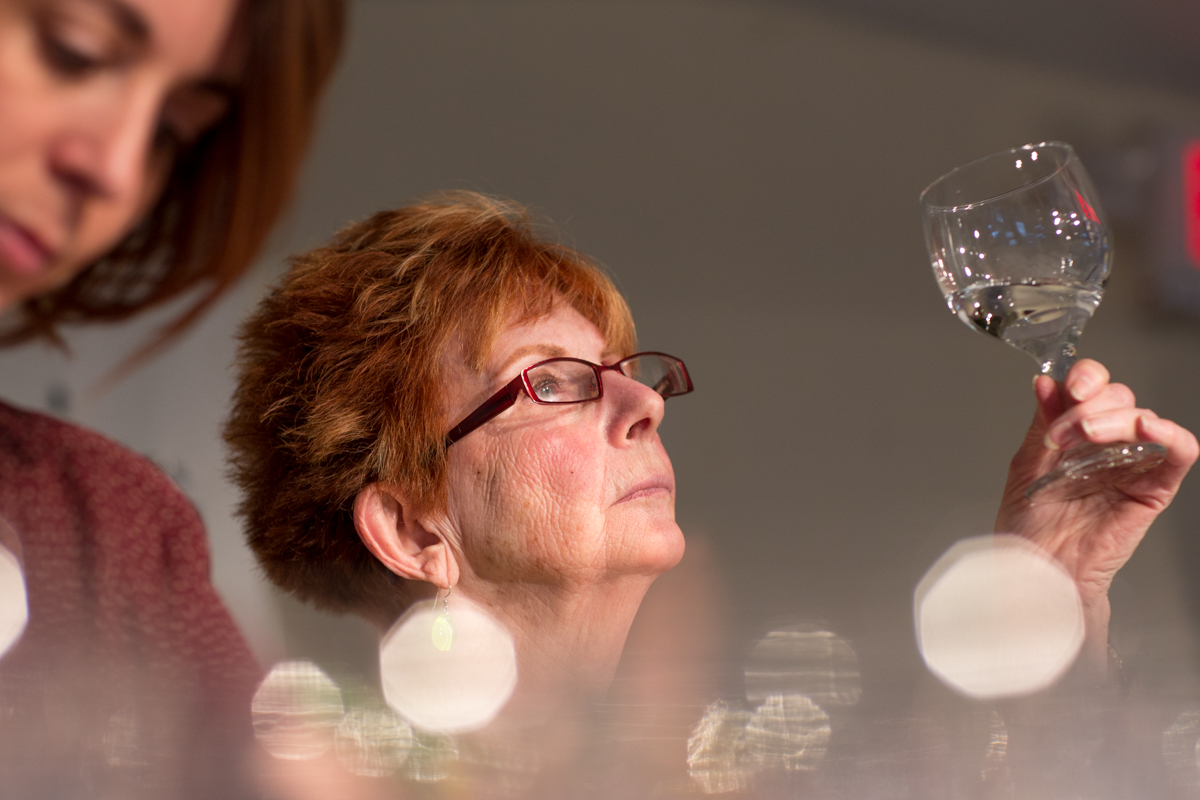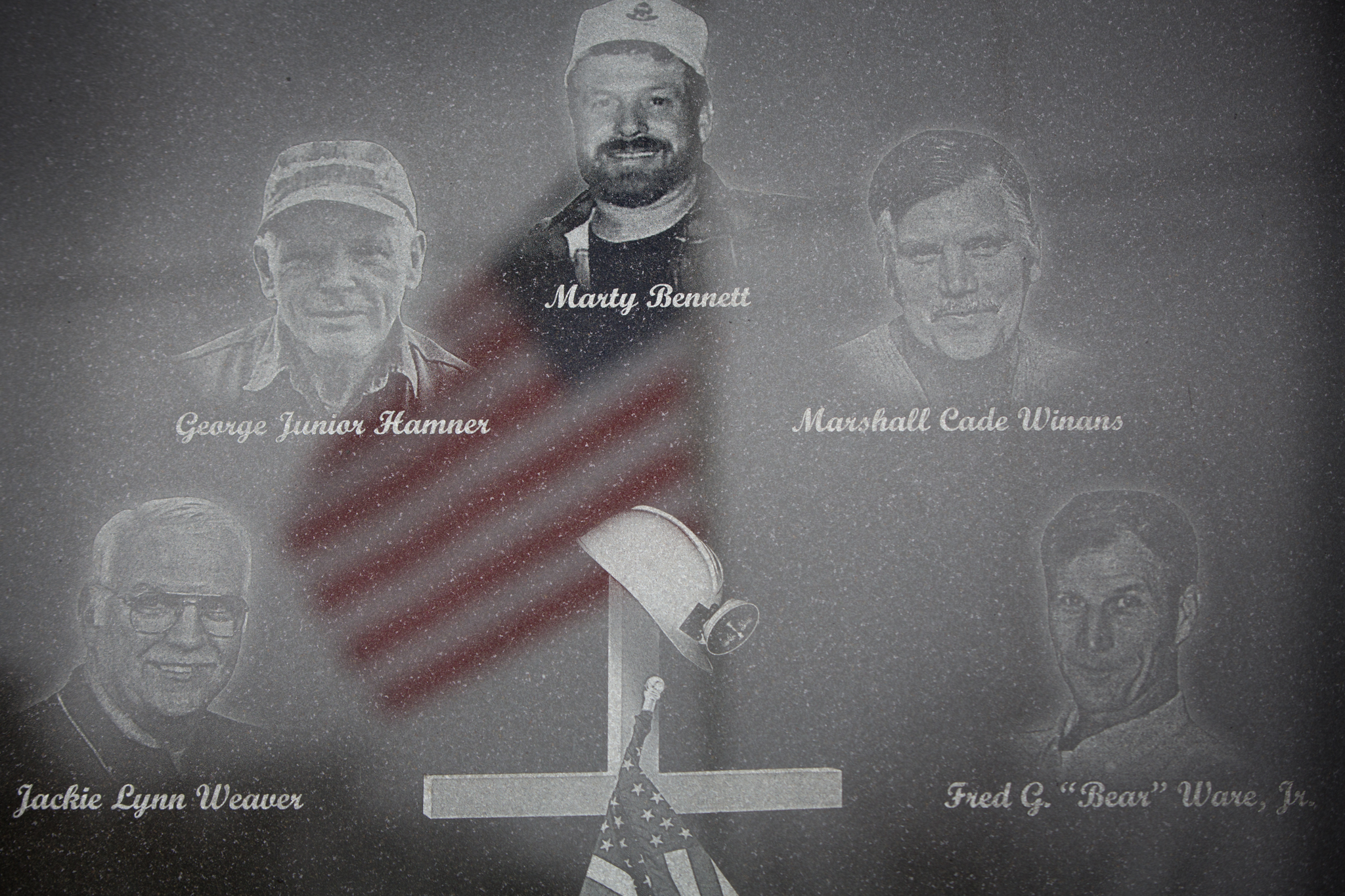Violet Gathalee Pavkovich stands on the small back porch of her powder blue, turn-of-the-century farmhouse, an orange cat meandering around her legs. White wicker furniture contrasts the rusty railroad tracks that border her back yard.
“Trains hauling coal come through here two or three times a day,” she remarked casually. As I thank her for her time, she asks if she can give me a hug.
Pavkovich is like most female coal miners in West Virginia. Her undeniable femininity mingles with a natural sense of industrialism. She is strong, but she is compassionate. She’s maternal, but she’s one of the guys. Her story of the pain and joy forged underground spans four decades. As the nation shifts away from coal, stories like Pavkovich’s are threatened to stay in those dark and dusty tunnels forever.
Mountain mamas of West Virginia
Coal mining is deeply ingrained in Appalachian life. As a coal miner’s daughter, I recall how the black dust embedded in my father’s fingerprints left sooty smudges on every birthday card and paycheck. His brown eyes, lined with kohl, live in my memory. We have two washing machines (one reserved specifically for his denim overalls) and two frames of mind: the comfort of his snores on the living room couch and the worry when he leaves for work at 4 a.m.
My family represents the traditional unit of coal-mining culture. Shortly before the Civil War, coal replaced timber as the preferred fuel source. Tycoons established behemoth companies to exploit the rich seams of coal folded within the Appalachian Mountains. They created small, self-sufficient camps surrounding the mines in which miners and their families lived. Women held integral—albeit auxiliary—roles in twentieth century coal camps. They were charged with rearing the children as their husbands labored double-digit shifts underground. Some women even worked “off the books” alongside them. After coal camps began to dissolve in 1950, women remained in traditional homemaking roles.
Pavkovich’s mother was one of those women. Every man in her life was a coal miner, from her grandfather to her future husband John. Her mother, a “feisty, little” woman, tended to the children as Pavkovich’s father labored away in a Kanawha County coalmine. In 1955, just after her thirteenth birthday, Pavkovich’s father received a steady position in a new mine. Within months, he was rendered paraplegic in an accident underground. Pavkovich’s mother—like many coal mining wives—now had to care for her husband, as well. Women in coal communities were slaves to the company, even after their husbands ceased working.
Their unlikely liberation from domesticity arrived with Martin Luther King, Jr. and the Civil Rights movement. When President Lyndon B. Johnson signed the Civil Rights Act of 1964, it protected both African Americans and women by creating the Equal Employment Opportunity Commission to help prevent workplace discrimination. The Act was amended just eight years later to establish affirmative action, a policy that required employers to hire minority workers.
The federal government pressured coal companies in Appalachia to adhere to affirmative action, but very few companies hired more than a handful of women. However, in 1978, the Coal Employment Project, an advocacy group for women, filed a lawsuit over sex discrimination in the hiring process. As a result, coal companies hired 830 women in 1978. By the mid-1980s, that number quintupled.
A man’s world
Pavkovich entered the coal mines in October 1976. She grew tired of bouncing around from job to job. Her husband was a coal miner. She figured there was no reason why she couldn’t be one, too. She abandoned her $1.60-an-hour gig at Rite Aid for nearly $18,000 in her first year as a miner.
“I loved it,” she said with a shrug. “I always liked hard work, and I got good money for it.”
In the book Daughters of the Mountain: Women Coal Miners in Central Appalachia, sociologist Suzanne E. Tallichet explains that women of the 1970s began to “challenge men’s breadwinner status within the patriarchal working-class family.”
By fearlessly entering a male-dominated workplace, Pavkovich and other female coal miners undermined the traditional familial setup for coal families.
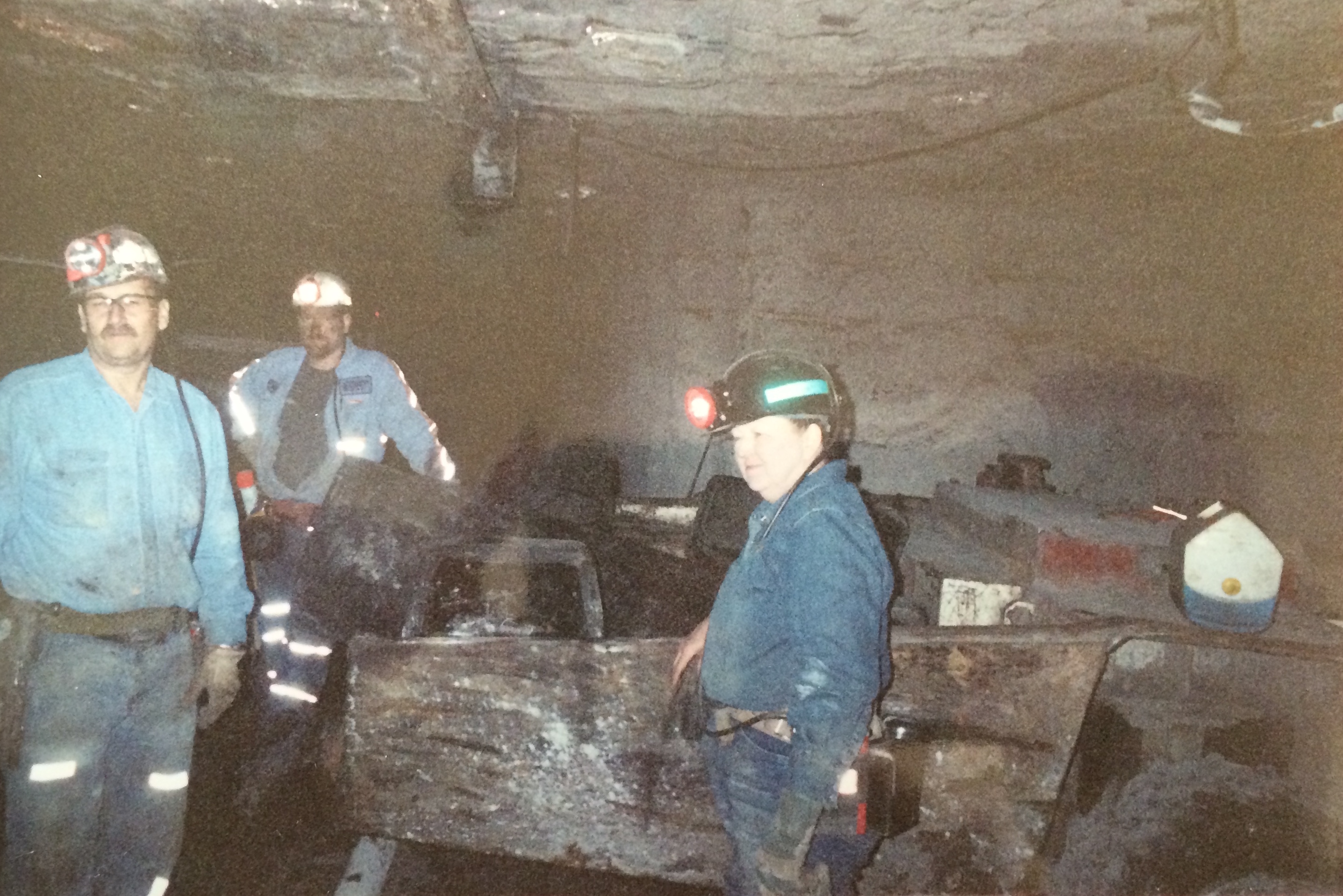
However, Pavkovich’s fortitude elicited animosity from her male coworkers.
“A lot of them didn’t think women should be in the mines. They didn’t want to work with me,” she admits.
In her first few months underground, the men were relentless. They teased her with rats and refused to teach her how to operate the equipment, a skill necessary for her role as a general inside laborer (G.I.).
G.I.s perform brute work in the coal mine. They are required to assemble and move heavy machinery, as well as shovel coal by hand when it falls off of the beltway. In 1978, 57 percent of all female coal miners were G.I.s, compared to 20 percent of all men. Instead of improving her relationships with her coworkers, Pavkovich’s bosses demanded that she learn on her own.
“They wanted to use me,” she emphasizes. “The boss would order me around: ‘Violet this, and Violet that.’ He wouldn’t tell the other guys to do that stuff, and I did whatever he told me to do.”
In one instance, her coworkers’ obstinacy resulted in serious injury. She and another miner crouched in a low area of the shaft to secure the top of the mine with bolts.
“He wouldn’t teach me to run the machine. He should have been teaching me. That’s what I was there for,” Pavkovich insists.
Because she wasn’t taught correct safety procedure in the situation, Pavkovich moved in front of the machine. It smashed her leg when her coworker swung the equipment around.
“I still have a great big indentation from that,” she said.
Tallichet explains that the animosity between male and female coworkers materializes as the process of “housewifization.” Men pressure women to perform the same duties in the workplace as they traditionally do in the home.
“The result is a gendered division of labor that puts women at a disadvantage in the workplace,” Tallichet summarizes.
By refusing to teach Pavkovich the skills necessary to do her job, her male coworkers relegated her to menial and back-breaking tasks that mirrored a wife’s duties at home, like cleaning up the beltway or watching men perform the “real work.”
Pavkovich’s belittlement was also dangerously sexual. The company provided bathhouses on site, where most men changed before their shifts. As one of the only women at her mine, Pavkovich was given a separate bathhouse, but she felt uncomfortable using it. Every day, she got dressed for work at home, donning her denim uniform and tucking her hair completely into her hardhat.
“That’s the only way my coworkers ever saw me,” she explained.
One day, Pavkovich was late for work and unable to dress beforehand. When she arrived at the mine, the men were astonished to see her in feminine attire with her long brown hair cascading around her face. She quickly disappeared into the bathhouse, changed into her uniform and headed underground.
“I seen you when you came to work,” a man said, approaching her in an empty tunnel. “You really looked good.”
Pavkovich retorted that she had never given him a second thought and yet he moved closer. He chased her underground, trying to pin her against a piece of machinery.
“I knew what he was going to do,” Pavkovich recalls. “I had listened to him talk.”
Pavkovich immediately went to her boss and demanded that the man be removed from any of her future shifts. The boss reluctantly complied.
Tallichet explains that sexual assault and harassment in the mines is about dominance, rather than lust. The men’s refusal to acknowledge Pavkovich as a valuable coworker and the attempted sexual assault stemmed from the same desire to subordinate women.
“Objectification and work-related trivialization are mutually reinforcing processes,” Tallichet said. Like Pavkovich, many women dealt with the issues themselves to avoid any legal ramifications.
In 1981, however, eight women miners at a coal mine in northern West Virginia filed a lawsuit and sought $5.5 million in damages when their coworkers drilled a peephole into their bathhouse.
“This still goes on, everywhere,” Pavkovich laments.
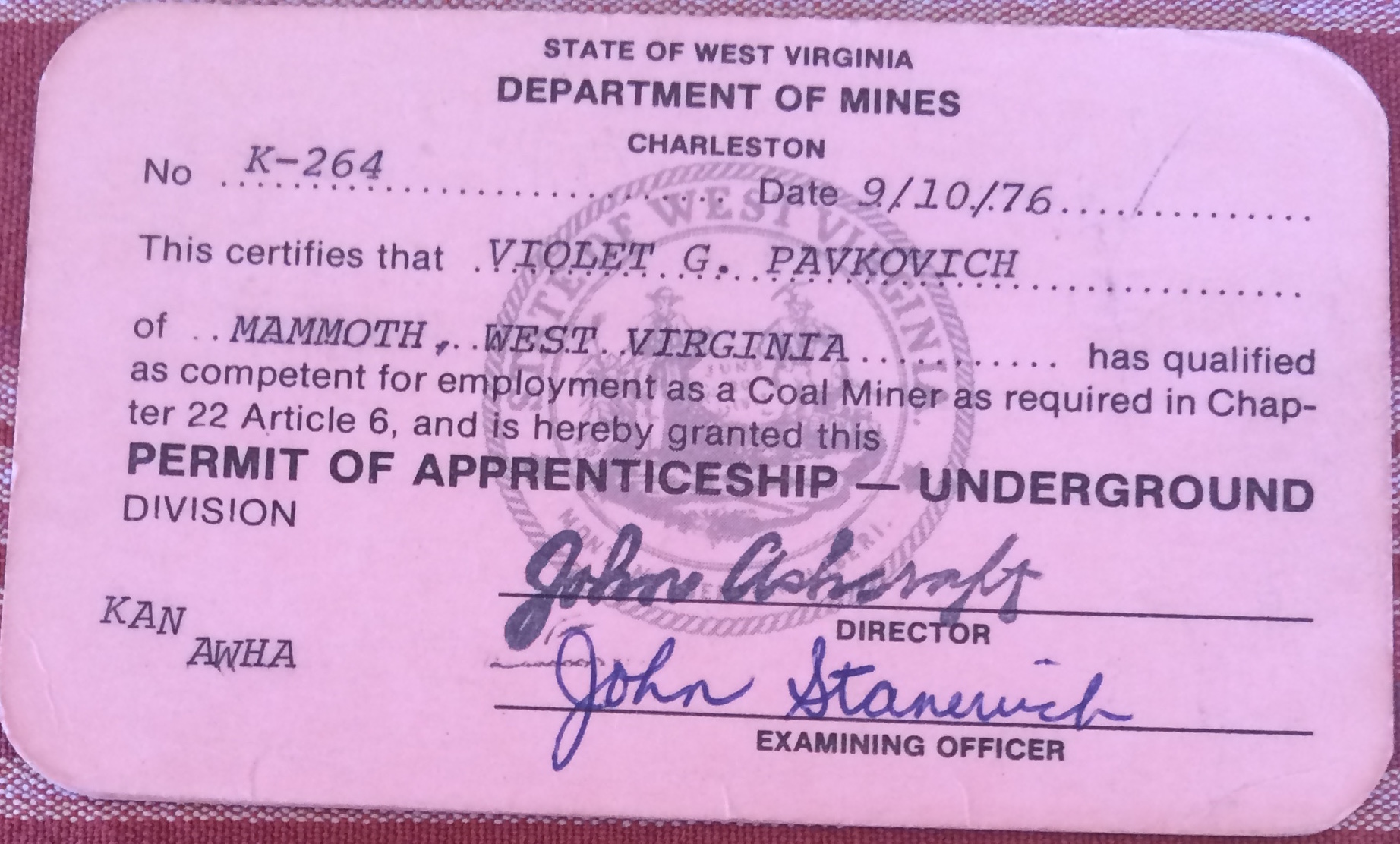
‘Just like one of the guys’
In 1979, Pavkovich was laid off.
“When they hired me, they told me that they hadn’t had a layoff in 30 years, and that I wouldn’t have to worry about it. Three years later, I was laid off,” she remembers.
Layoffs increased during the late 1970s and early 1980s due to improvements in mining technology and deindustrialization. Tallichet explains that women were among the first to go.
“It gave the company the excuse it needed to get rid of those women who [they believed] weren’t qualified to be coal miners,” she explained.
Pavkovich returned to work in 1996, after seventeen years of raising her granddaughter.
“When I went back at age 54, I noticed a shift. They treated me just like one of the guys,” Pavkovich recalls. “They offered to help me. They weren’t mean to me.”
Pavkovich’s new coworkers were happy to include her in rites of passage, some of which were unwanted. Veteran coal miners often grease newcomers, a messy ritual in which a few men hold the rookie down and pour grease down his or her pants.
“It was humiliating,” Pavkovich said with a laugh.
The use of nicknames was another way that the male coal miners started to become more inclusive. None of the miners could pronounce her middle name or last name. They tried calling her “Pack” for a while, but they finally just settled on Violet.
By contrast, Addie Marie Jefferson, a 73-year-old coal miner in north central West Virginia, recalls her nickname with fondness. When her boss assigned tasks for the day, Addie noticed that he gave her more work than any other miner.
“If you want me to do all of those jobs, you’re going to have to pay me mo’ money,” she told him. Her coworkers, amused by her response, started calling her “Mo,” and the name stuck.

Tallichet credits newfound inclusivity to the adaptability of women rather than the sensitivity of men. Time allowed women to adapt to their environment and take on more masculine traits.
“Those women who could ‘act like a man’ and ‘still be a woman’ demonstrated considerable inner strength,” she said. Nicknames and initiations were signs that men finally acknowledged the strength of women.
Eventually, Pavkovich began to out-produce the men, which only increased their respect for her.
“I could shovel coal for two hours without stopping, even at 60 years old,” she boasts. Thirty-year-old miners would swap shoveling duties every half-hour while Pavkovich continued on.
“Not very long ago, a former coworker told my granddaughter that I was the best there was. Men couldn’t outwork me, and I never grumbled or complained.”
From miner to matriarch
In 2004 and at the age of 62, Pavkovich retired from the coal industry. Despite the practical jokes, the harassment and the disrespect at the beginning of her career, she said would choose coal mining again.
“There’s no job that a woman can’t do,” she said. Pavkovich is grateful that retirement has given her time with her family, who supported her during her years underground.
“She worked like the rest of the guys, and probably better than most,” said Pavkovich’s son James.
Over the years, Pavkovich worked from dawn until dusk, and then came home to make dinner for her family. She raised three children and a granddaughter. She nursed her ailing husband until he passed away in 2015. She baked for her coworkers, bringing elaborately decorated cakes for break-time birthday celebrations. She mothered and she mined coal.
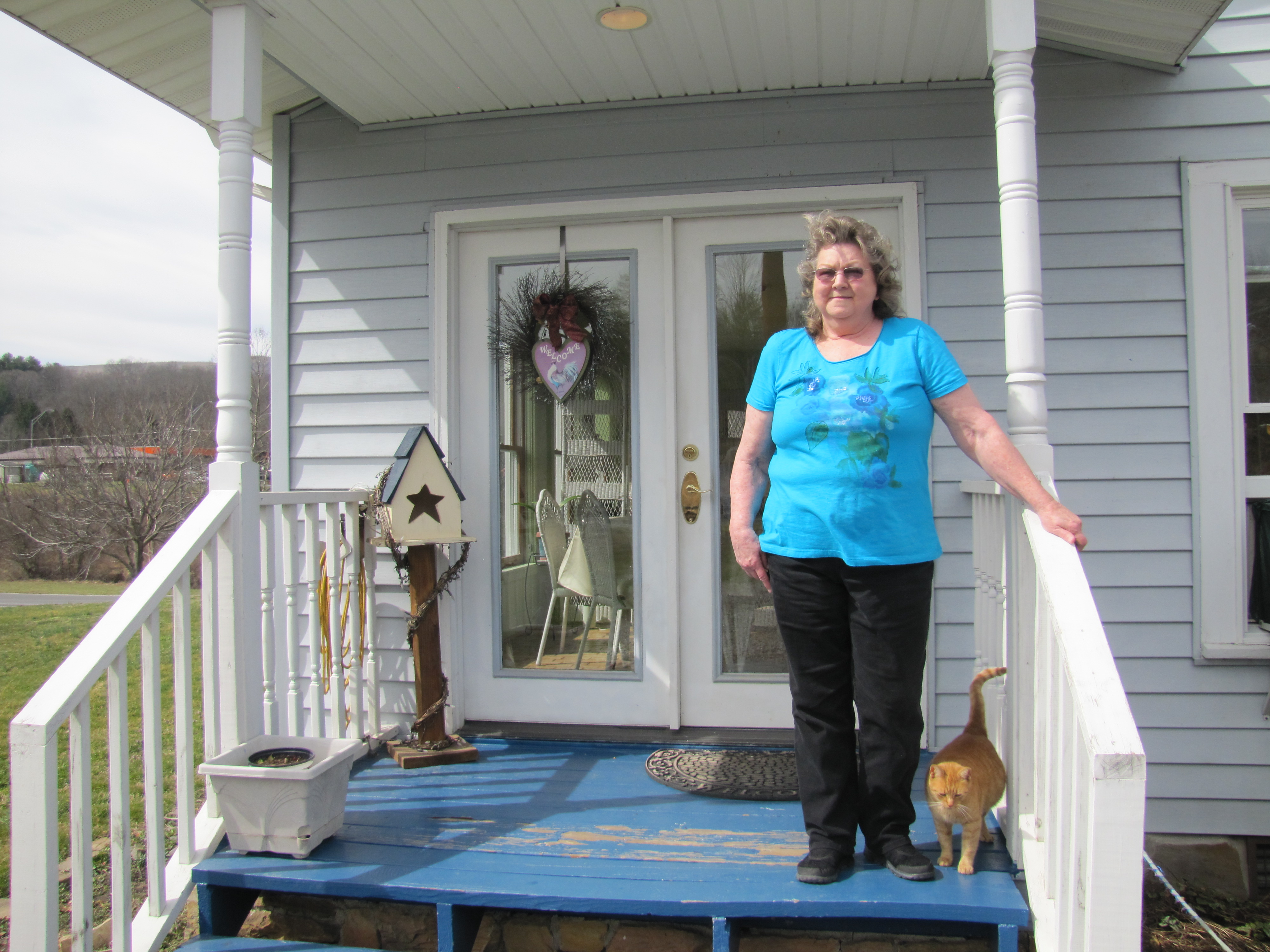
At her farmhouse in southern West Virginia, Pavkovich waves as I back down her gravel driveway. I think about the game I would play with my father’s overalls as a little girl, plucking them from the dryer and testing how long I could touch one of the scorching copper buttons before pulling away.
I wonder if Pavkovich has two washing machines. And then I realize—to my dismay and to my delight—that her second washing machine is probably her own two hands. She is a miner and a matriarch. Both of her identities are rich and necessary — just like West Virginia coal.
Adelina Lancianese (@AdLancianese) is a graduating senior in Georgetown University’s Walsh School of Foreign Service in Washington, D.C. She is majoring in Culture and Politics and minoring in Justice and Peace Studies. Adelina is a freelance writer for The Beckley Register-Herald, The Post-Report, and The Washington Post. She also serves as project assistant for The American Pilgrimage Project in conjunction with StoryCorps. She hopes to pursue a career in feature writing or political journalism upon graduation.


